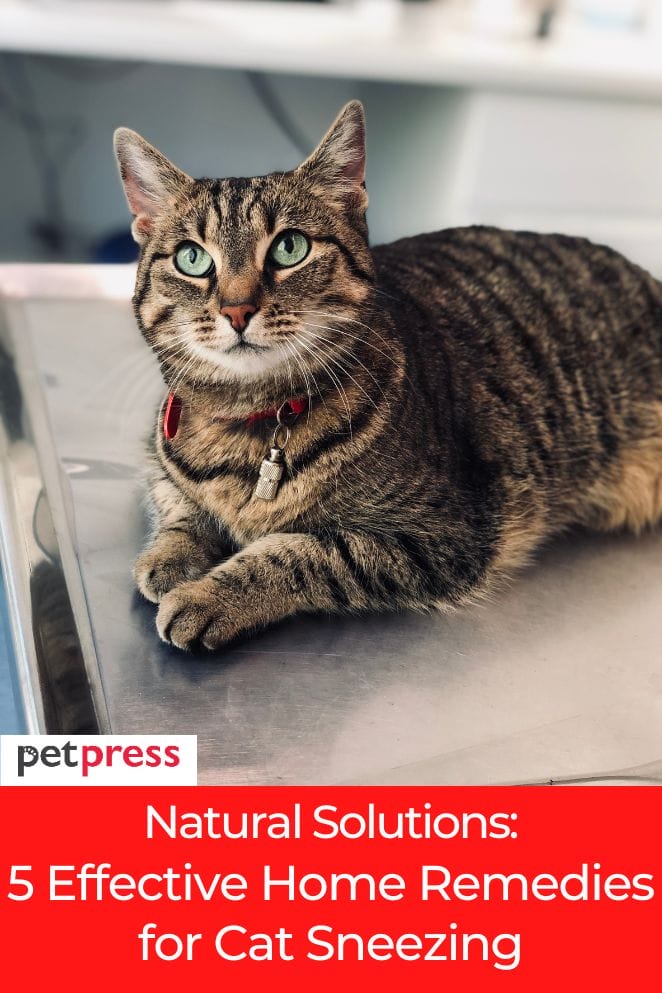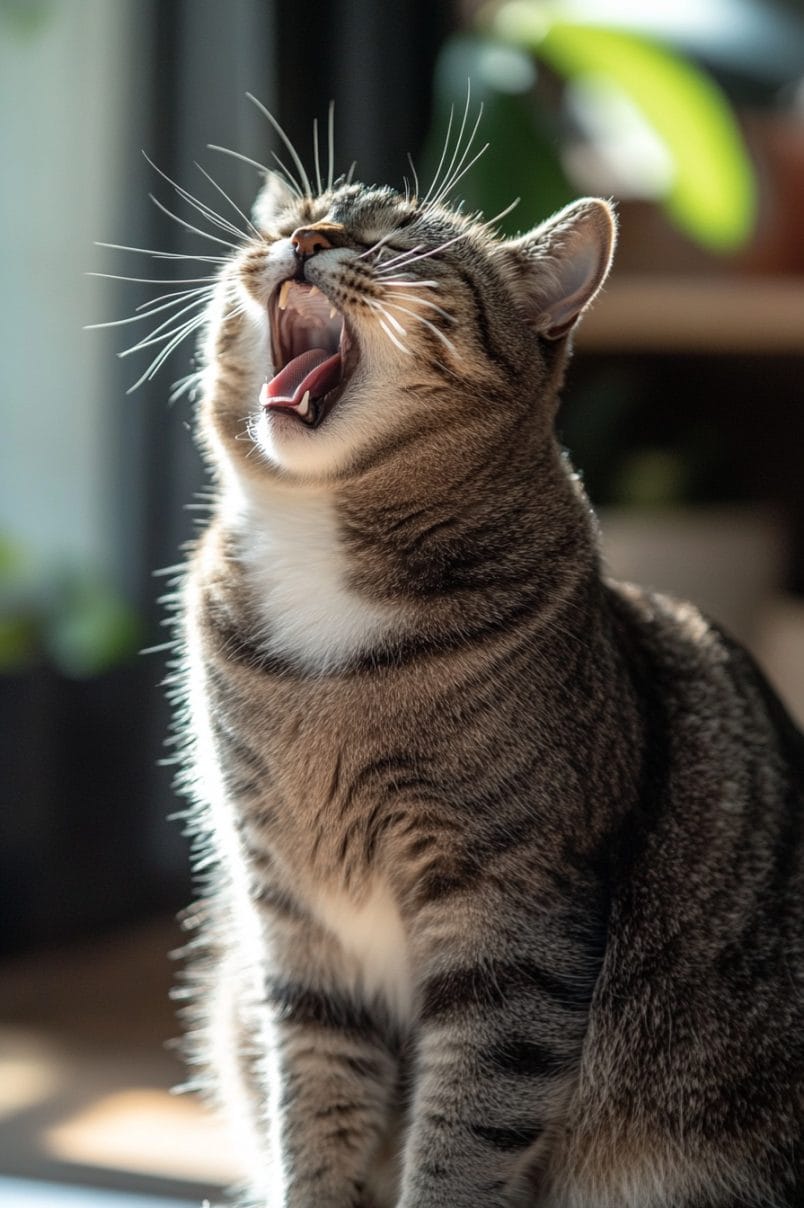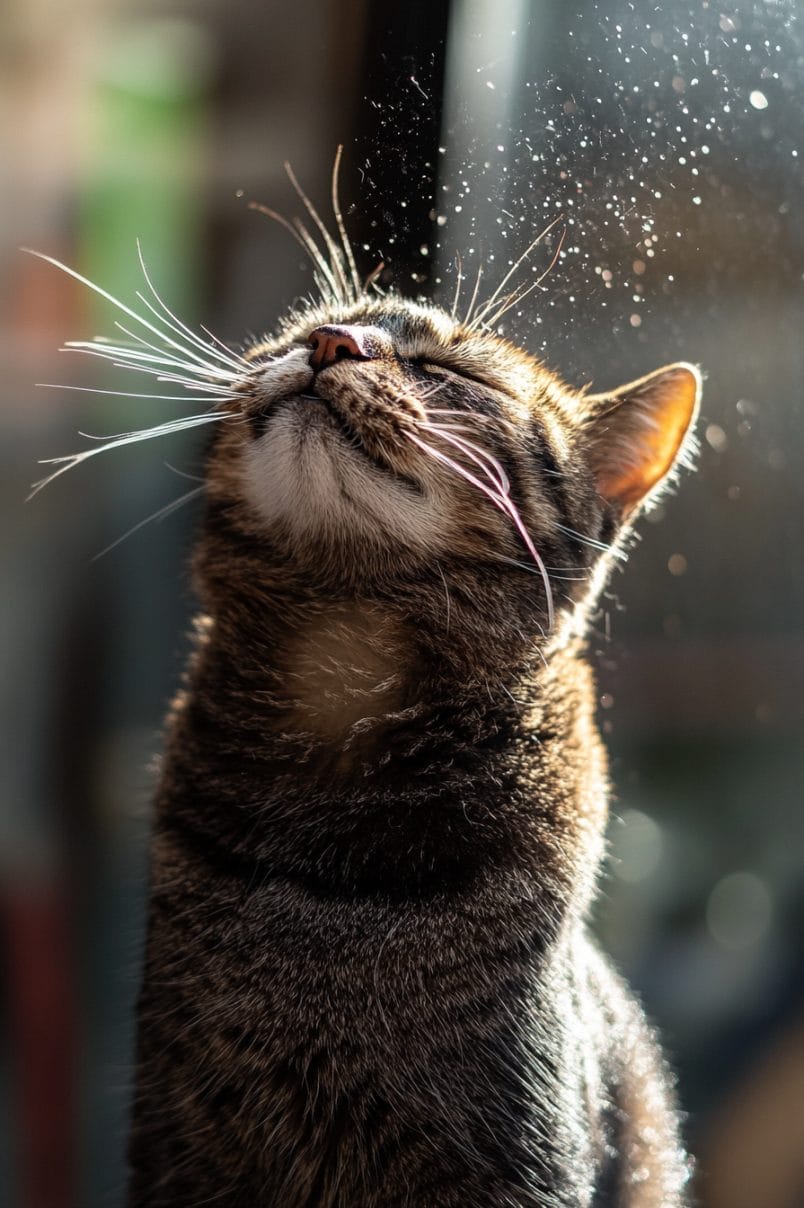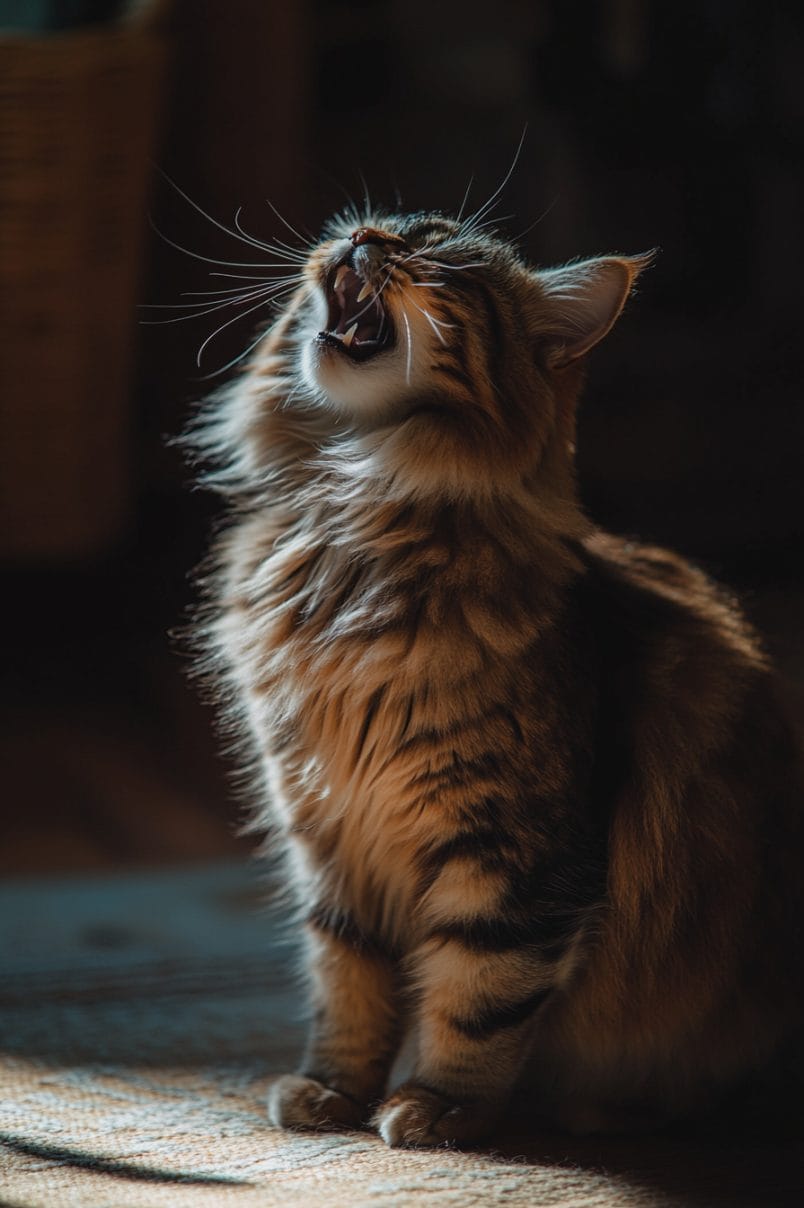
Cats sneeze for various reasons, ranging from harmless to more serious conditions.
Understanding why your cat is sneezing is the first step in finding the right remedy.
Sneezing can be a sign of allergies, upper respiratory infections, or even foreign objects lodged in their nasal passage.
While occasional sneezing is nothing to worry about, frequent or severe sneezing should not be ignored.
Common Causes of Cat Sneezing
Allergies
Just like humans, cats can suffer from allergies.
Common allergens include pollen, dust, mold, and even certain types of food.
When a cat inhales these allergens, their body may react by sneezing in an attempt to clear the irritants from their nasal passages.
According to the American College of Allergy, Asthma, and Immunology, about 10% of people are allergic to pets, but cats can have allergies too.
Identifying and removing the source of the allergy is crucial in reducing your cat’s sneezing.
Upper respiratory infections
Upper respiratory infections (URIs) are another common cause of sneezing in cats.
These infections are often caused by viruses, such as the feline herpesvirus or calicivirus.
URIs can cause symptoms like sneezing, runny nose, and watery eyes.
A study published by the Journal of Feline Medicine and Surgery found that up to 90% of cats are exposed to the herpes virus at some point in their lives.
Cats with weakened immune systems, such as kittens or elderly cats, are particularly susceptible.
Foreign objects
Cats are naturally curious animals, which sometimes leads them to sniff around in places they shouldn’t.
If your cat has been exploring a dusty area or playing with small objects, it’s possible that something could have gotten lodged in their nasal passages.
This can cause irritation and lead to sneezing as the body tries to expel the foreign object.

Home Remedies for Cat Sneezing
Now that we’ve covered some of the reasons why your cat might be sneezing, let’s talk about what you can do at home to help.
Remove environmental irritants
One of the simplest ways to reduce your cat’s sneezing is by eliminating environmental irritants.
Dust, cigarette smoke, strong perfumes, and household cleaners can all trigger sneezing in cats.
Regularly clean your home to remove dust and allergens, and consider using air purifiers to keep the air clean.
If you smoke, try to do so outside, away from your pet.
Use a vaporizer
Using a vaporizer or humidifier in the room where your cat spends most of their time can help soothe their nasal passages.
The moisture helps to clear out mucus and makes breathing easier.
A humidified air can relieve nasal congestion in both humans and animals.
Just make sure the vaporizer is placed safely so your cat can’t knock it over.
Feed potent-smelling food
When a cat is sneezing due to a cold or respiratory infection, their sense of smell might be diminished.
This can make them less interested in eating, which can slow down their recovery.
Offering potent-smelling foods, such as wet cat food or warmed-up meals, can stimulate their appetite.
The warmth and smell can entice your cat to eat, which is essential for maintaining their strength and immune system.
Boost immune system
A strong immune system can help your cat fight off infections and recover faster.
Consider adding immune-boosting supplements to their diet, such as vitamin C or E, but always consult with your vet before introducing new supplements.
Providing a well-balanced diet rich in essential nutrients is also key to keeping your cat healthy.

Provide proper ventilation
Good ventilation is important to ensure your cat is not breathing in stale or contaminated air.
Make sure their living space is well-ventilated and free from any strong odors or chemicals.
If possible, open windows to allow fresh air to circulate, but make sure your cat can’t escape or get into trouble outdoors.
Clear nasal discharge
If your cat has a runny nose along with sneezing, gently wiping away the discharge with a soft, damp cloth can help keep them comfortable.
Be sure to use a clean cloth each time to avoid spreading any infection.
Keeping the nasal area clean can also help prevent further irritation.
Encourage regular feeding
Cats can lose their appetite when they are unwell, which can lead to weakness and delayed recovery.
Encourage your cat to eat by offering small, frequent meals.
Warm up their food slightly to enhance the aroma, making it more appealing to them.
When to See a Vet
Sometimes, home remedies can help with minor issues like sneezing in cats.
However, there are situations where you should definitely consult a vet.
If your cat is sneezing but also showing other signs like being unusually tired, not eating, or having discharge from its eyes or nose, it’s a good idea to get professional help.
These additional symptoms could mean that your cat has a more serious problem, such as a bacterial infection or a long-term condition that needs specific treatment.
If the sneezing persists and doesn’t get better with the home remedies you’ve tried, it’s best to have a vet examine your cat to determine the exact cause and get the right treatment.

Conclusion
Cat sneezing can be caused by a variety of factors, from mild allergies to more serious infections.
By understanding the cause of your cat’s sneezing and using appropriate home remedies, you can help them feel better and breathe easier.
However, if your cat’s symptoms persist or worsen, don’t hesitate to consult a veterinarian.
Your furry friend’s health and well-being should always come first.
FAQs
No, you should never give your cat human medications without consulting a vet, as some ingredients can be toxic to cats.
Not necessarily. Occasional sneezing can be caused by irritants like dust or pollen. However, frequent or severe sneezing should be monitored closely.
A well-balanced diet helps maintain a strong immune system, which can reduce the likelihood of infections that cause sneezing.
Some breeds with flatter faces, like Persians, may be more prone to respiratory issues, including sneezing, due to their anatomy.
- Does Cat Litter Melt Ice? The Complete Guide to Winter Safety - January 30, 2026
- Happy Tail Dogs: Understanding This Common Canine Condition - January 29, 2026
- How Cold Can Outdoor Cats Handle? Feline Winter Safety - January 27, 2026


GIPHY App Key not set. Please check settings